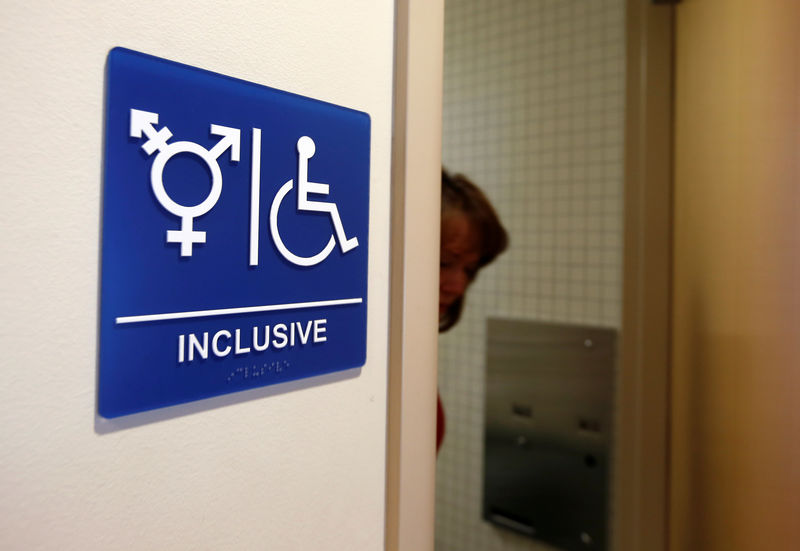By Jon Herskovitz
AUSTIN, Texas (Reuters) - Texas measures criticized as being discriminatory for limiting transgender people's access to bathrooms in schools and public buildings died on Tuesday, as the House adjourned and ended its special legislative session.
Business leaders and civil rights groups had battled to defeat the bills, saying they advanced bigotry, would tarnish the state's image and damage its economy. The measures were blocked by moderate House Republicans.
Adoption by Texas, the most populous Republican-dominated state, could have fed momentum in other socially conservative states on the issue, a flashpoint in the U.S. culture wars.
"Finally, Texans can breathe a temporary sigh of relief," said JoDee Winterhof, an official of the Human Rights Campaign that lobbied against the bills.
"Texans don’t want harmful, anti-transgender legislation," Winterhof, the campaign's senior vice president for policy and political affairs, said in a statement.
Momentum for so-called bathroom bills stalled this year when North Carolina partially repealed a similar law in March. The original law prompted boycotts by athletic bodies and businesses that are estimated to have cost the state hundreds of millions of dollars.
Texas could have lost about $5.6 billion through 2026 if it had enacted such a measure, said the Texas Association of Business, the state's leading employer grouping.
The House wound up its duties without taking action on any of the bills and adjourned "sine die," a day ahead of the official end of the 30-day special session.
House Speaker Joe Straus, a pro-business Republican who controls the agenda in the chamber, said the issue was not a priority.
Straus' position was reinforced by a well-financed campaign by major corporations, including Texas-based energy companies Halliburton (NYSE:HAL) and ExxonMobil (NYSE:XOM) Global Services, which have said the bills would make it hard for them to recruit top talent.
The measure that advanced the farthest was Senate Bill 3, which passed easily on a party-line vote in the Republican-controlled Senate and then died in the House.
It would have required people to use restrooms, showers and locker rooms in public schools and other state and local government facilities that match the sex on their birth certificate, as opposed to their gender identity.

Supporters, including Republican Lieutenant Governor Dan Patrick, a staunch social conservative, say the proposed curbs promote public safety and protect vulnerable women and children.